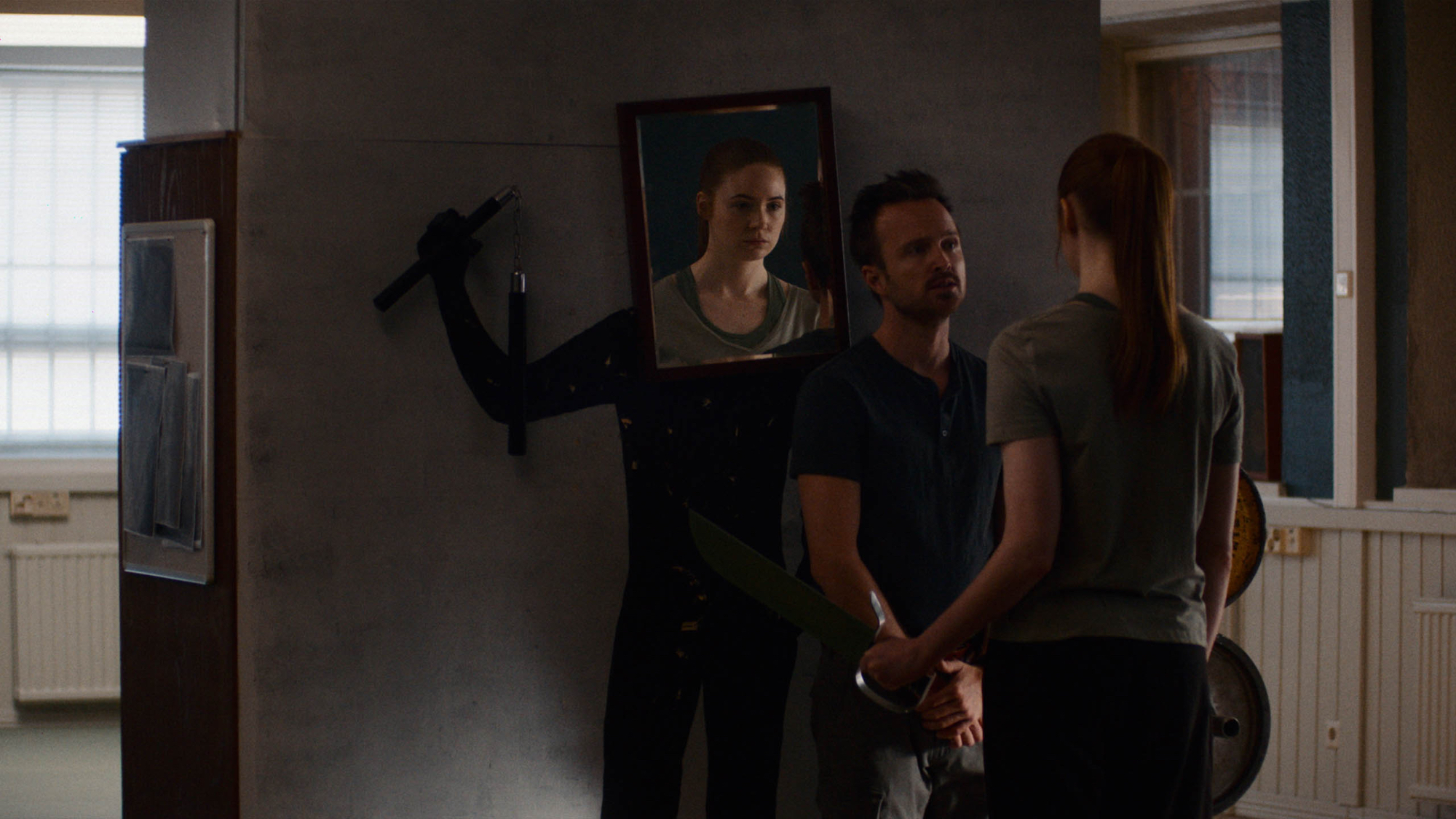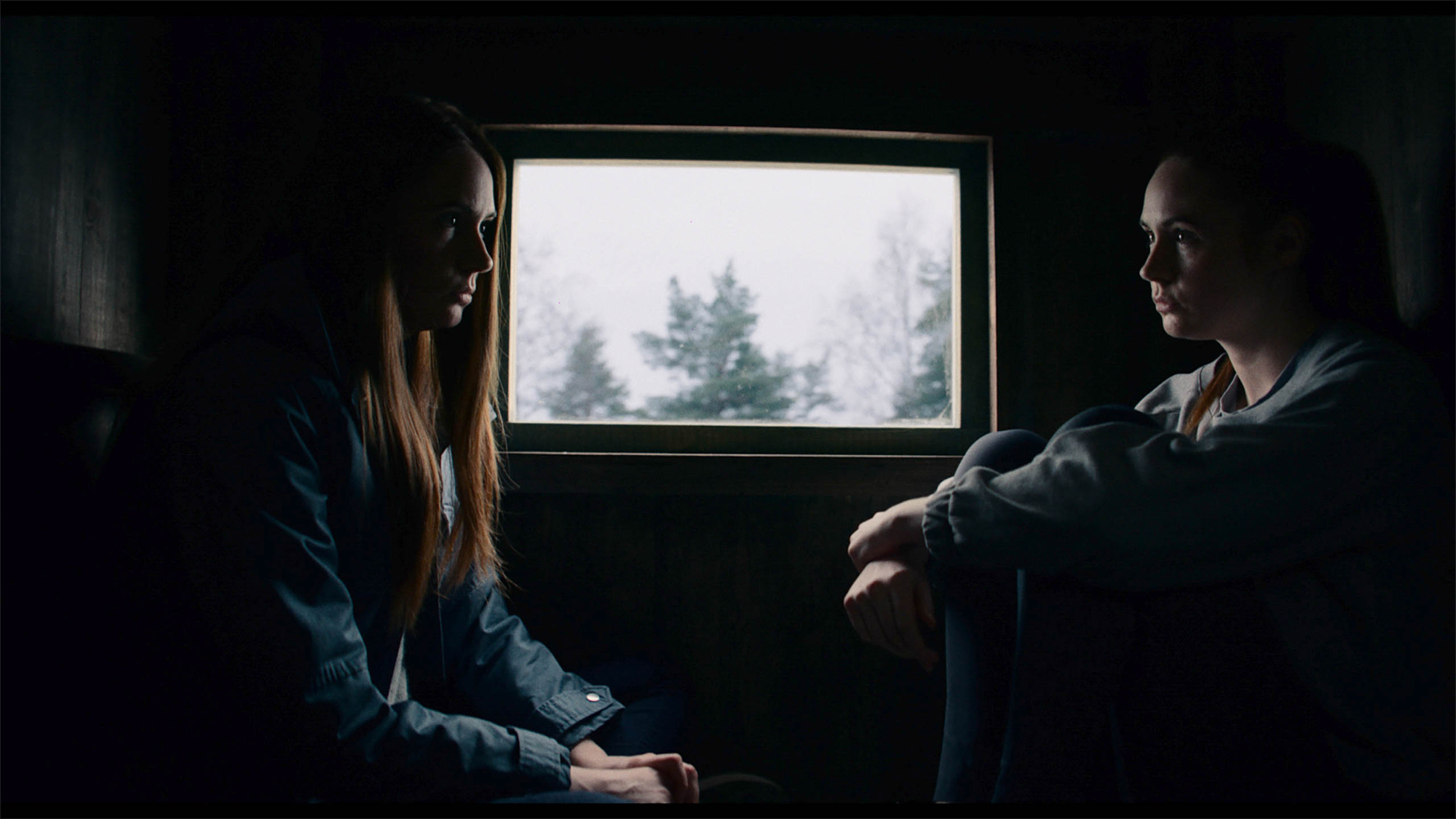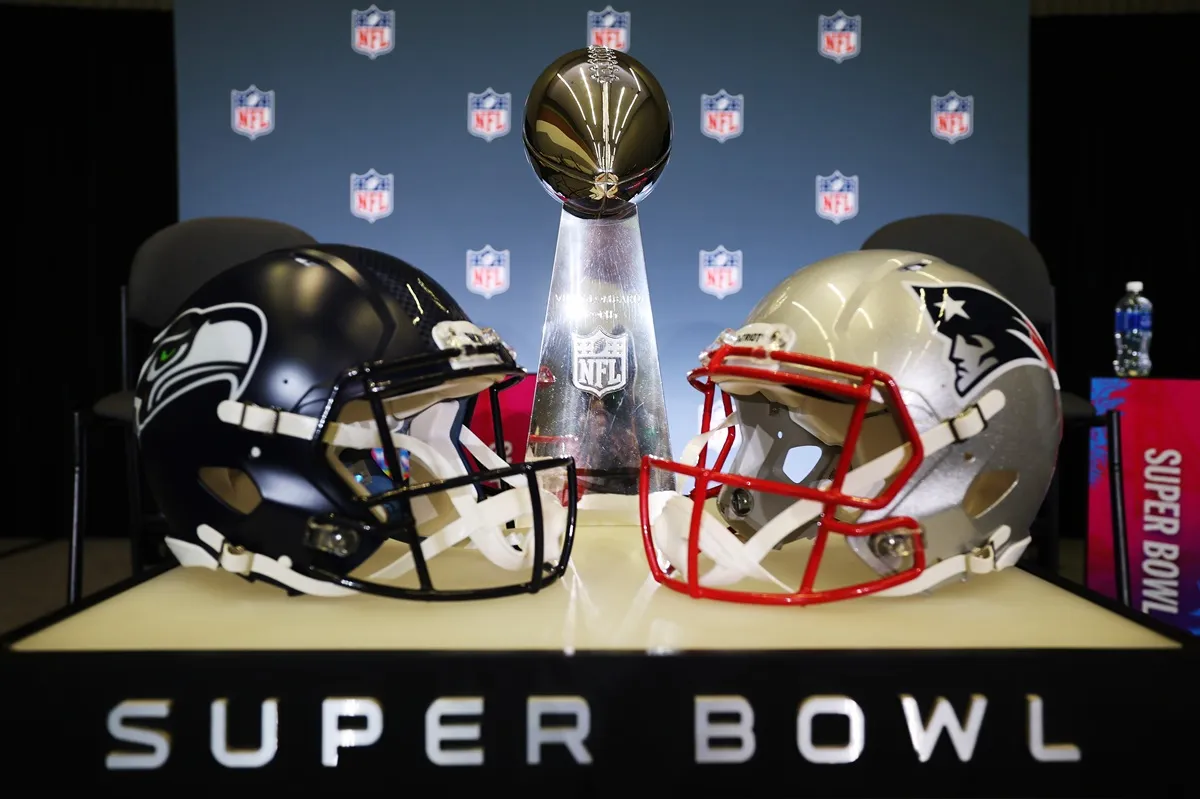‘Dual’ Movie Review [Sundance 2022]: Karen Gillan, Aaron Paul Clone Sci-Fi Ends With a Whimper
Dual boasts a fun concept that will undoubtedly draw audiences in. Writer/director Riley Stearns pairs social commentary with an effective dry sense of humor. Dual presents a fully-realized world that fascinates, but the questionable story and character choices stop this sci-fi from achieving greatness.
‘Dual’ taps into a world of clones and death

Sarah (Karen Gillan) wakes up after coughing up blood in her sleep. She sees a doctor, who informs her that she has a terminal diagnosis that puzzles medical professionals. Sarah opts for a cloning procedure so that it can take her place after she dies. She’s concerned that those closest to her will worry and she wants to give them this gift.
Dual follows Sarah after she unexpectedly recovers from her illness. She files a motion to decommission the clone. However, Sarah’s double wants to live and repeals the decommission process. As a result, the two have a year to train before engaging in a court-mandated duel to the death. The winner gets to live the remainder of Sarah’s life.
Writer/director Riley Stearns taps into violence as a form of entertaining sport
Dual establishes Sarah’s loose connections with those around her. She has issues with her overbearing mother and a distanced boyfriend, who only continues to give her the cold shoulder. This is the life that she’s leaving behind, although she expects the clone to take over and further develop these relationships. However, she doesn’t anticipate the clone’s ever-changing behavior.
Stearns’ screenplay frequently addresses death. However, this world views it in radically more natural light. None of the characters show any discomfort talking about their deaths or of those closest to them. As a result, Dual‘s characters instill no sense of severity. The people in this world appear to reject sadness, exhibiting little emotion to significant developments.
Dual is all about violence. Stearns’ film incorporates some on-screen, but it’s more of a social commentary on violence as a sport. A network broadcasts the duels to the world as a popular sport to determine who will live and who will die. It’s occasionally reminiscent of Kinji Fukasaku’s Battle Royale. Sarah hates to watch violent content, but she will need to get comfortable with it before the duel begins.
‘Dual’ merely teases what audiences crave

Dual knows what audiences want, but refuses to give it to them. The exciting opening sequence sets a tone that the rest of the film doesn’t take advantage of. This is also true when Sarah seeks help from a duel combat trainer (Aaron Paul). Dual temporarily explores a fascinating connection between the two, as he helps prepare her for the fight. However, Stearns suddenly drops him completely.
Stearns’ entire delivery is odd. Gillan, Paul, and the rest of the cast give intentionally monotone performances. They read their dialogue like they took heavy doses of truth serum, speaking in a stream-of-consciousness style. Gillan and Paul fully commit to the bit, although it often makes this world feel inaccessible and cold.
Dual seeks to instill meaning in its final moments, but it’s anti-climactic in a way that will surely leave audiences desperate for a promise that Stearns never delivers on. Some of his dry comedy lands, but the film lacks an emotional core. The characters aren’t invested in their own journeys, so why should we be? Dual presents stimulating concepts and ideologies, but it intentionally lets the audience down. However, the point isn’t any good if it gets in the way of its own storytelling.


